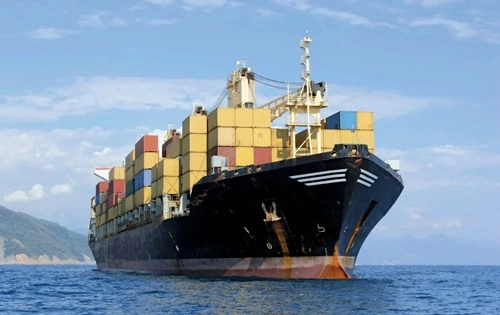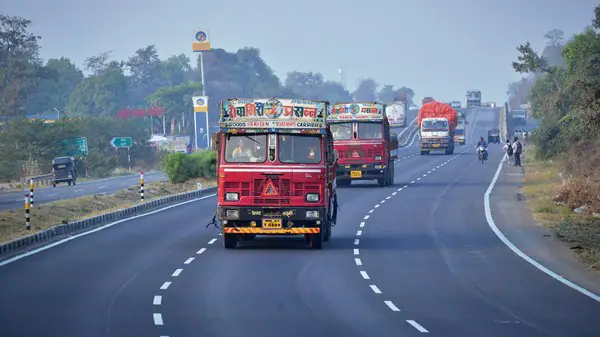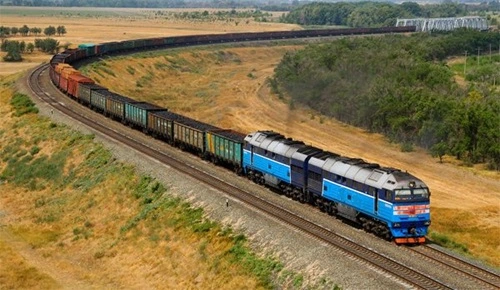Would you find it amazing how important and wide-ranging water transport really is? Consider boats, ships, barges, and even yachts humming across rivers, lakes, seas, and oceans, you know? We, as in the human race, cover anything from calm canal rides to the great distances of the open ocean. So, what is that special thing about water transportation really? Well, it’s not just any approach, it’s a cost-effective or maybe the cheapest way of moving things, particularly for large and bulky commodities. The great capacity of ships makes moving large goods simple. Let’s end this introduction by saying that water transport is precisely how it sounds, yes, it is to transport things by sea or oceans or even rivers, and we do that by using boats, ships, mainly those huge container ships. However, like any mode of transportation, it comes with its own set of advantages and disadvantages. Let’s explore:

Advantages of Water Transport
1. Really Economically Conscious
Unbelievably, water transport literally changes everything when it comes to saving some very significant money. Consider rivers as the natural highways of nature, already there, free to use, no building or annoying upkeep required. The maintenance won’t break the budget even when people intervene and create canals, you know? Particularly when compared to road or rail, water transportation is a bargain for running expenses.
2. Grand Storage Capacity
The premise is that ships and other water boats kinda resemble floating stores. One trip, they can carry far more goods than trucks or railroads allow. For delivering large quantities of machinery, tons of raw materials, you name it, this really is quite helpful, isn’t it though? Ships assist reduce the required number of journeys by their large cargo capacity, therefore saving even more on transportation expenses.
3. Safety Above All
Water transportation gets really good on the safety scorecard. Ships drive through most storms, unlike aircraft that could be halted by adverse conditions, you know? When it comes to preventing mishaps, they are also far-advanced vehicles or machinery. There are neither open sea traffic jams nor highway pile-ups or anything like that! When it comes to delivering cargo across great distances without a hitch, ships are designed robust and quite dependable.
4. Environmental Conscious Vibrances
In the environmentally friendly hierarchy, water transport is quite or should we say “incredibly” important. By ton-mile of freight, ships leave less carbon footprint than vehicles or planes, did you know that? Fascinating is that ships produce far less carbon dioxide for every ton of goods transported a mile. By using rivers, one also reduces land usage and preserves natural ecosystems by sparing the area consumed for highways.
5. Making Contact with the Unreachable
Got anything to deliver somewhere far away, like really really far away? Water gets us to the rescue. Natural paths to hard-to-reach locations include rivers, canals, and other waterways, which open marketplaces difficult to break through. Ports assist local economies catch up by connecting these out-of-the-way sites to the worldwide market, therefore promoting commerce.
6. Juggling Many Kinds of Goods
Water transportation carries a great variety of commodities and does not back off from a task at all, no matter what. Hazardous products, liquids, big loads that would be unacceptable for aircraft? Ships can run across all of them. Furthermore, water transportation is essentially the sole means of travel for the delivery of products across continents. That’s how world trade happens.
Disadvantages of Water Transport
1. Not Exactly Speedy
In terms of speed, water transport is not winning any contests, particularly in relation to air or road travel. Consider ships and boats; they just cannot bustle like aircraft and vehicles do. Rivers curve and their picturesque paths truly increase the trip duration. Simple as that. If your cargo is linked to a ticking clock or if you are in a rush to transport perishable goods, this slow speed is not excellent. For companies that value timeliness, this slow-going might prove fatal.
2. A Bit Hit or Miss on the Reliability Scale
Though it’s not perfect, water transportation usually gets the thumbs up for dependability. How? Though less of a drama queen than travel, the weather may nevertheless cause a bit of chaos and delay with your plans. Although a one-day or two delay might not seem like a major concern, for companies whose operations depend on the clock it will cause significant disturbance of plans and you’ll surely miss that peace of mind, you know?
3. Port Problems
Not every port is developed equally. Remember that! It’s a major hassle as some just aren’t up to scratch while managing the big guys of cargo ships. At the ports, this congestion might cause a slowdown. Furthermore, if you live in a landlocked location, you are out of luck unless you are ready to hitch a ride to a port overland.
4. Watch Out for Pirates
Yes, you did indeed read correctly, pirates, not the entertaining Johnny Depp style either. Theft and piracy are actual hazards while your commodities are sailing the high seas, especially in countries where law enforcement is inadequate, they are not only story elements in a movie. Businesses have to increase security, implement monitoring, and maybe even staff two guards or more to secure those valuable shipments.
5. Not the Best Pick for the Fresh Stuff
It shouldn’t be hard to understand that fresh fruit, dairy treats, and anything that degrades quickly definitely doesn’t appeal on those lengthy maritime cruises. These things are less than fresh upon arrival and may have a terrible conclusion due to their slow speed. If freshness is your game, you might want to get into those other faster choices such as air or special road travel.
Comparison Between Advantages and Disadvantages of Water Transport
| Advantages | Disadvantages |
| Minimal maintenance costs and no need for building infrastructure | Not ideal for time-sensitive or perishable goods |
| Can transport large quantities in one trip, reducing the number of journeys | Weather conditions can cause delays and disruptions |
| Fewer accidents and safer for long-distance transport compared to other modes | Not all ports are equipped to handle large vessels efficiently |
| Lower carbon footprint per ton-mile compared to road or air transport | Security threats like piracy require additional measures and costs |
| Can reach locations that are inaccessible by road or rail | Slow transit times are not ideal for fresh or perishable items |
| Capable of carrying a wide range of goods, including hazardous materials |


